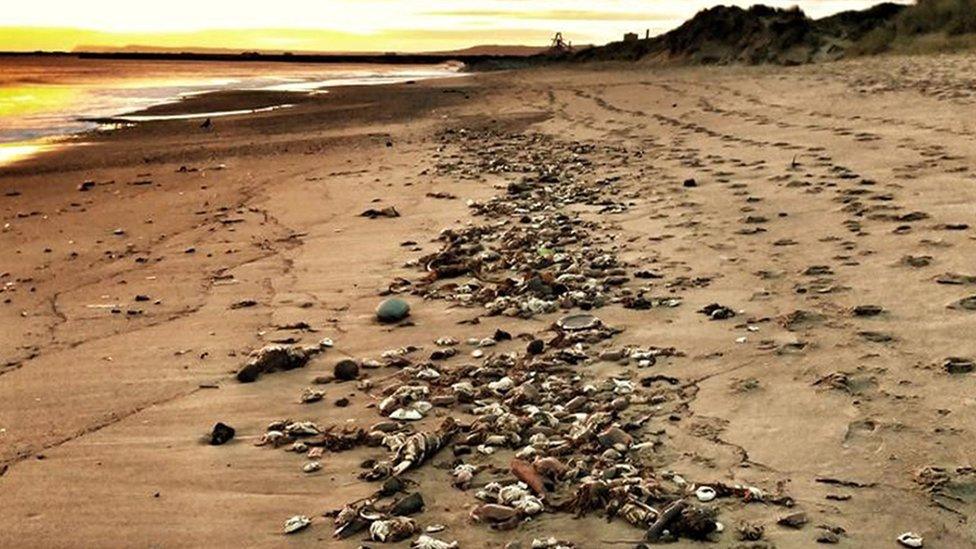North East crab deaths to be investigated by independent panel
- Published
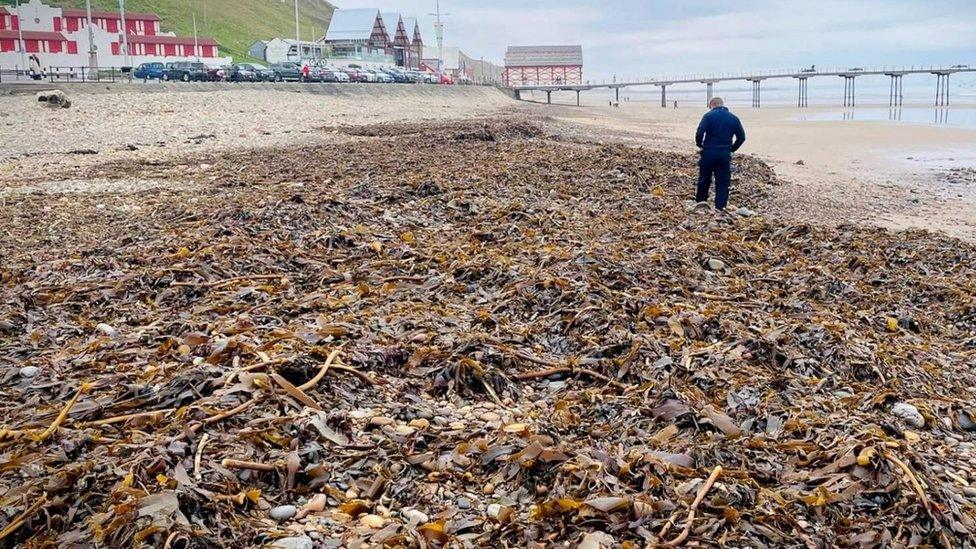
Dead crustaceans have washed up at several spots along the North East and North Yorkshire coast
The deaths of thousands of crabs, lobsters and other marine life on the North East and Yorkshire coast are to be investigated by a panel of experts.
Carcasses washed up at spots across Teesside and North Yorkshire between September and December last year.
The government has previously said a naturally-occurring algal bloom was the most likely cause.
However, some fishermen fear it was linked to dredging at the mouth of the River Tees.
They believe that may have released a chemical called pyridine, which was prevalent in several industries on Teesside and which tests showed was "exceptionally toxic" to crabs.
Further shellfish have washed up in recent months.
It has been announced Prof Gideon Henderson, chief scientific advisor at the Department for Environment, Food and Rural Affairs (Defra), will work with the government's chief scientific advisor, Sir Patrick Vallance, to establish the independent group which will be made up of experts from outside the government.
Deaths 'unusual'
It comes after the Environment, Food and Rural Affairs Committee this month called for more research and a review of dredging having heard fishermen reported their catches being "decimated" by the die-offs between Seaham and Robin Hood's Bay.
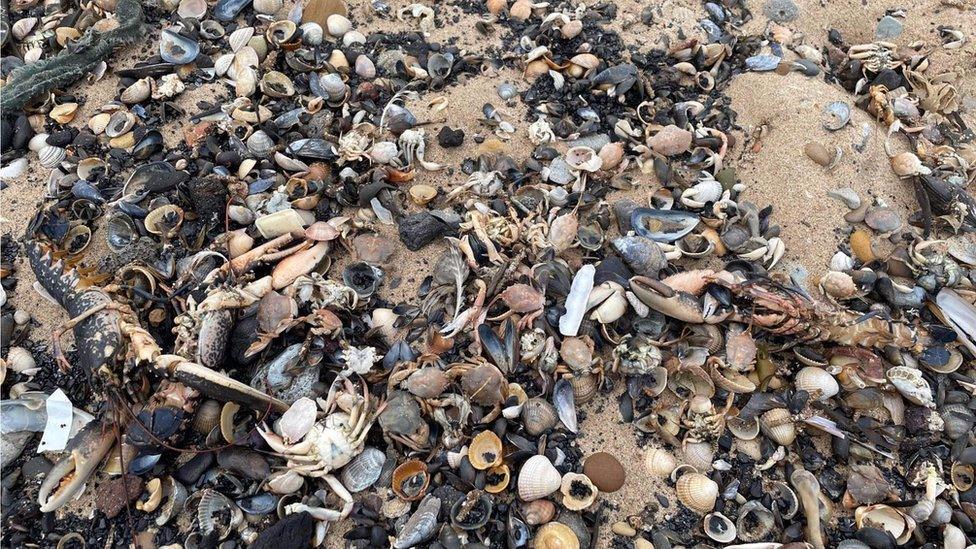
Fishermen say they have been badly affected by the loss of so many crustaceans
Fisheries minister Mark Spencer said the panel would consider all explanations for the deaths.
"I recognise fishing communities in the North East want as thorough an assessment as possible into the crab and lobster deaths last year," he said.
"Defra's investigation concluded that the most likely cause was an algal bloom, but we have always recognised this is a complex area of science and have remained open to further research.
"That's why it is right that all the evidence is now assessed by independent experts and I look forward to receiving their advice."
'Conflicting evidence'
Prof Henderson, who has not previously been involved in Defra's investigations, described the deaths as "unusual" and said the panel would "re-examine all available data".
He added: "The increased sea-life mortality has important consequences for local communities and it is important we understand its cause."
Conservative Scarborough and Whitby MP Sir Robert Goodwill, who chairs the Environment, Food and Rural Affairs Committee, said he was "delighted" Defra had agreed to put a "fresh pair of eyes" on the issue in an attempt to "find their way through the conflicting evidence".
He told BBC Radio Tees "we need to get on with it" as "people do need answers" and "it's important we get to the bottom of this".

Follow BBC North East & Cumbria on Twitter, external, Facebook, external and Instagram, external. Send your story ideas to northeastandcumbria@bbc.co.uk, external.
- Published1 November 2022
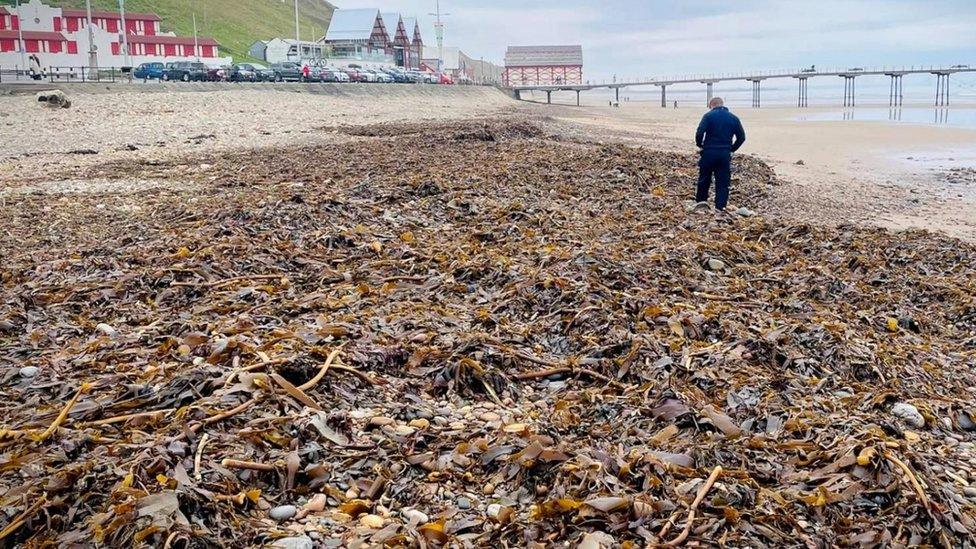
- Published25 October 2022
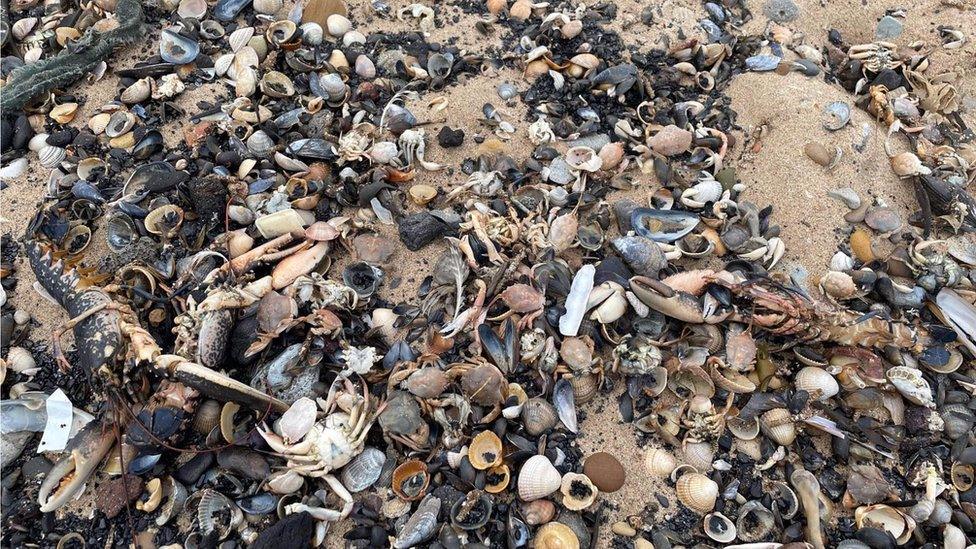
- Published4 November 2021
